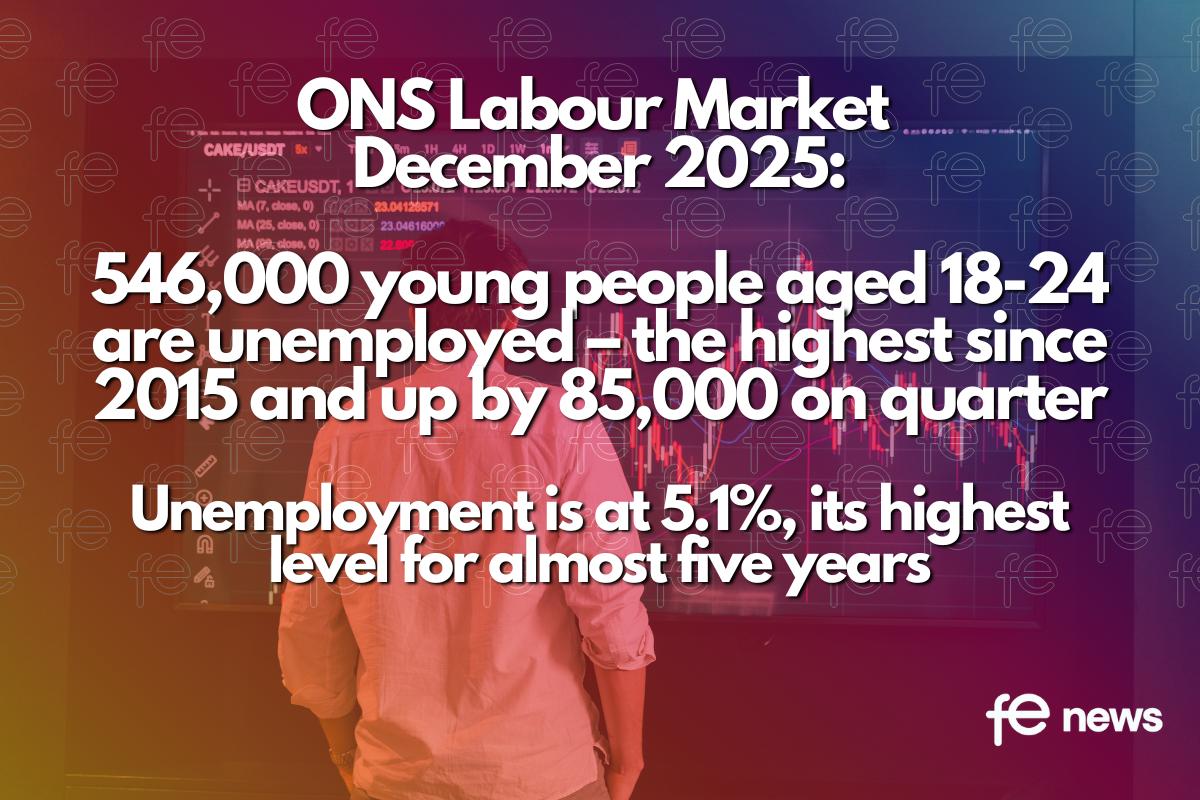Now is the time to embrace digital as a force for inclusion

As the FE sector faces major reform in England, supporting colleges’ digital transformation is critical to the future of inclusive lifelong learning.
Although England is mid-way through a second lockdown, our colleges are open, welcoming students onto sites – albeit with additional measures regarding social distancing and facemasks. I have no doubt that being able to meet in person with their peers and teachers will have a positive impact on learners’ education as well as their wellbeing.
While there is much to look forward to in the coming year, uncertainty still fogs the FE sector, and many of the learners who’ve missed out on five months of high-quality education earlier this year are likely to need additional support. Government advice still encourages face-to-face teaching and learning, but – regionally and nationally – no one can predict the future when it comes to COVID. The only certainty is that nothing is off the table.
That said, there is also huge opportunity to embed long-term conditions for colleges to thrive, delivering the skills for a post-pandemic economy as well as rebooting the lifelong learning model we expect to see in the Government’s forthcoming FE Reform White Paper.
Now is the time to rethink approaches to teaching, learning and assessment. We need flexibility built into college delivery, facilitating engaging experiences, whether students are on campus, learning off-site at home, or in the workplace. Blended and hybrid learning are becoming the norm, and colleges are already leading in the delivery of technology-enhanced learning. The problem is, they have done so to date without the financial certainty or confidence to invest in real, long-term digital transformation.
The golden thread
The good news is that, in the fast-changing, post-COVID landscape, the FE sector is galvanising, pulling together research and expertise to forge a better future. Jisc is collaborating with college leaders, teachers, learners, sector bodies and edtech experts to gather insights and forecast issues. I am proud to be part of this work, and equally so to contribute to the Independent Commission on the College of the Future’s expert panel, which today publishes the first in a series of nation specific reports, supporting an ambitious vision for the FE and skills sector.
Today’s report for England puts ’people, productivity and place’ at the heart of recommendations that include a statutory entitlement to lifelong learning and three-year grant funding for English colleges to operate and plan strategically. I see digital as the golden thread that can elevate the ambitions within and make them a reality.
The digital divide
As this plays out, how do we ensure that no citizen is left behind? FE learners are often among the most disadvantaged, and coronavirus has compounded that; some learners’ parents have been made redundant, and many learners have lost work themselves. There’s also a vulnerability that goes beyond income into mental health and wellbeing. Throughout the UK, I sense great anxiety.
So, when government talks of levelling up, colleges know that must mean increased inclusion and greater access to learning. If learners don’t have enough data on their mobile phone to access course materials remotely or can’t watch a recorded lesson off-site because they don’t have reliable wifi, that’s a priority issue. We’ve seen the impact of digital and data poverty laid bare these past few months, and the AoC announcing just last week that 100,000 FE learners are still without devices. We know it’s not just an inner-city issue but one that also hinders learners in regions where connectivity is poor.
Jisc has raised the issue in positive discussions with government and some telecoms companies to explore solutions that can enable parity of connectivity for those learners at a particular ‘data disadvantage’.
Flexible and future-proofed
Digital is the enabler that supports colleges in their local community, drives economic regeneration, and enables a more accessible and inclusive culture for teaching and learning. Colleges have an opportunity now to address the digital divide, opening up further opportunities and supporting skills to prepare learners for the increasingly digital workplace. It’s about more than boosting employability; digital supports colleges to connect people, maximise productivity, and reach learners wherever they are. These are aims that unite the sector, and this is the time to embrace change, build on what we have learned through lockdown, and deliver technology-enhanced, flexible, future-proofed education for all.
Robin Ghurbhurun, Jisc’s managing director of further education and skills
Robin Ghurbhurun is managing director of further education and skills at the education and technology not-for-profit, Jisc. He sits on the expert panel for the Commission on the College of the Future Commissioner, which published its UK-wide report in October. The Commission today sets out recommendations for realising its vision for the college of the future in England.











Responses